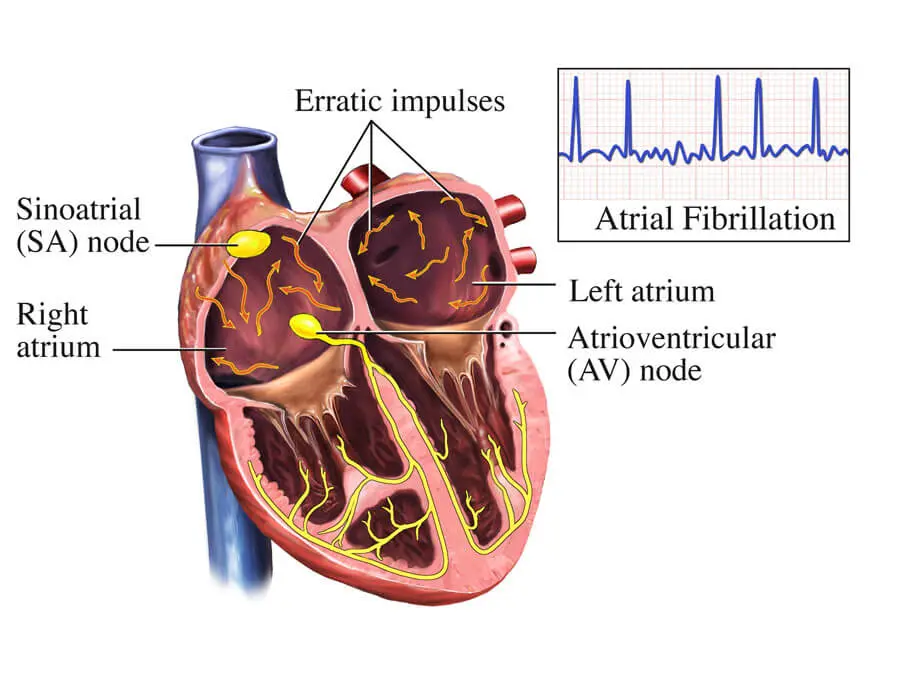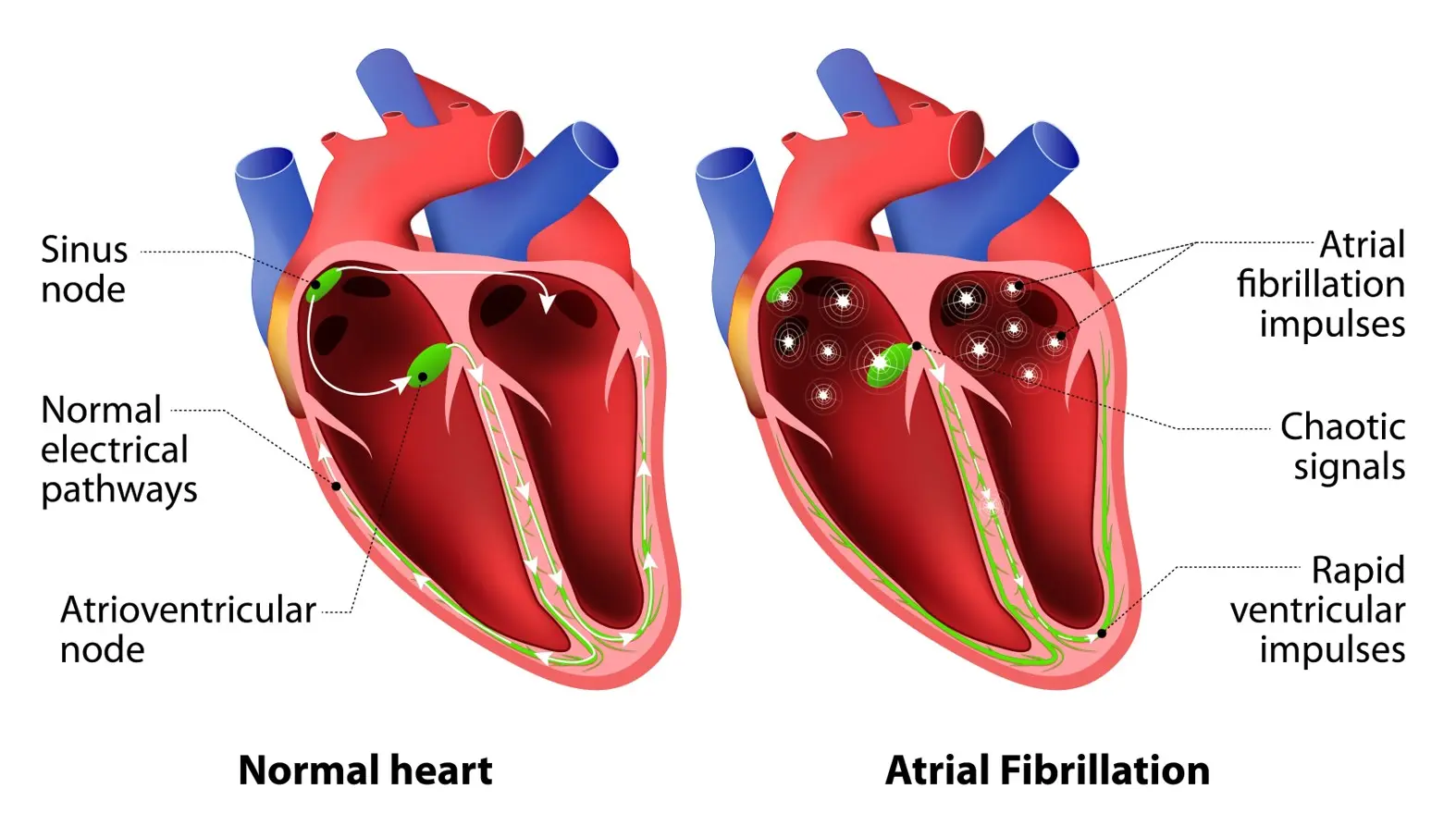Can Atrial Fibrillation be Cured?
Sometimes
Treatment focuses on controlling heart rate, restoring normal rhythm, and preventing complications; outcomes vary, and long-term management is often necessary

What is Atrial Fibrillation?
Atrial fibrillation is an irregular and often rapid heart rate that can lead to stroke and other heart-related complications. Treatment includes medications to control heart rhythm and prevent blood clots.

Clinical Aspects

Characteristics
Irregular and often rapid heart rate that can lead to stroke and other heart-related complications

Symptoms
Irregular heartbeat, palpitations, fatigue, dizziness

Diagnosis
Electrocardiogram (ECG), Holter monitor, imaging studies, assessment of symptoms

Prognosis
Variable, may increase the risk of stroke and other complications

Complications
Stroke, heart failure, increased risk of blood clots
Etiology and Treatment

Causes
Aging, heart disease, high blood pressure, diabetes, excessive alcohol consumption, and other factors

Treatments
Medications (anticoagulants, antiarrhythmics), catheter ablation, cardioversion

Prevention
Medications (anticoagulants, antiarrhythmics), catheter ablation, cardioversion
Public Health and Patient Perspectives

Epidemiology
Common heart rhythm disorder characterized by irregular and rapid heartbeats

Patient Perspectives
Medication adherence, lifestyle modifications, monitoring heart health
This information is for general understanding and is not a substitute for professional medical advice. Always consult with healthcare providers for accurate and personalized information related to your health.
Share: